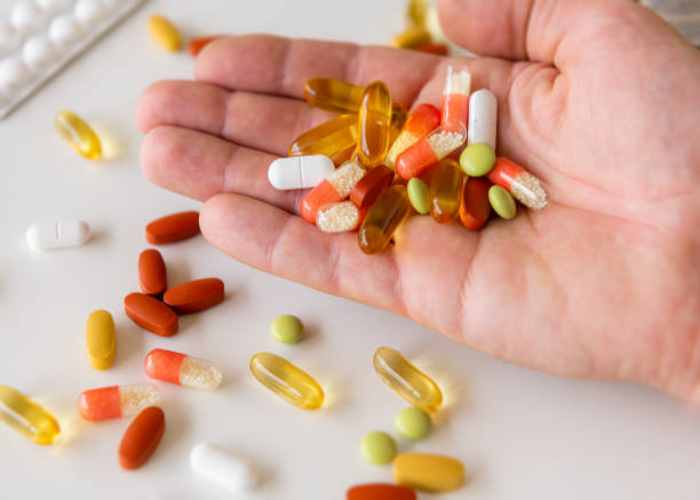The Impact of Sports Nutritional Supplements on Muscle Recovery
The role of sports nutritional supplements in muscle recovery has garnered significant attention in both athletic and scientific communities. These supplements, which often contain protein, amino acids, and other key ingredients, are believed to facilitate faster repair and growth of muscle tissue following intense physical activity. Understanding the nuances of their effectiveness, including ideal timing and hydration strategies, can be critical for athletes aiming to enhance their recovery process. However, the landscape of research and evidence surrounding these supplements raises important questions that merit further exploration.
Types of Sports Nutritional Supplements
In the domain of sports nutrition, various types of nutritional supplements are available to support athletes in enhancing performance and facilitating muscle recovery. These supplements can be broadly categorized into protein supplements, amino acids, creatine, and vitamins and minerals. Protein supplements, such as whey and casein, deliver essential nutrients that aid in muscle repair and growth, helping athletes recover more effectively from intense workouts. Amino acids, particularly branched-chain amino acids (BCAAs), play an important role in reducing muscle soreness and promoting recovery, making them ideal for post-exercise replenishment.
Creatine is widely recognized for its ability to increase strength and explosive performance, especially useful for athletes engaged in high-intensity training. Additionally, vitamins and minerals, like vitamin D and magnesium, are essential for supporting overall health, immune function, and energy production.
In recent advancements, supplements with AstraGin have gained attention for improving nutrient absorption. AstraGin, a natural compound derived from plants, enhances the body’s ability to absorb amino acids, vitamins, and other nutrients, potentially making supplementation more effective. By selecting supplements tailored to their specific nutritional needs and training regimens, athletes can leverage options like AstraGin to optimize recovery, nutrient utilization, and overall performance.
Key Ingredients for Recovery
Recovery is a crucial phase in an athlete’s training regimen, and specific key ingredients can greatly enhance this process. Prohydrolase is an enzyme that improves protein digestion and absorption, facilitating muscle repair by ensuring that amino acids are effectively utilized post-exercise. By enhancing the bioavailability of protein, prohydrolase supports faster recovery and muscle synthesis.
Carnosyn, a patented form of beta-alanine, is another essential ingredient known for its role in buffering acid in muscles, delaying fatigue and improving overall performance. Research indicates that supplementation with carnosyn can effectively increase muscle endurance and recovery time, allowing athletes to train harder and recover quicker. Including these ingredients in a post-workout regimen can considerably enhance muscle recovery outcomes.
Timing of Supplement Intake
Ideal timing of supplement intake plays a considerable role in maximizing muscle recovery and enhancing overall performance. Research indicates that post-exercise is the prime window for nutrient consumption, as muscles are primed for nourishment and recovery. Consuming protein and carbohydrates within 30 to 60 minutes after training can greatly enhance muscle protein synthesis and replenish glycogen stores, contributing to improved health and recovery outcomes.
Additionally, the timing of creatine supplementation, typically taken post-workout, can further support muscle repair and strength gains. To maximize the benefits of sports nutritional supplements, athletes should schedule their intake strategically around workouts, ensuring that their bodies receive essential nutrients when they are most needed for recovery and growth.
Benefits of Proper Hydration
Proper hydration is vital for optimizing athletic performance and facilitating muscle recovery, as even mild dehydration can greatly impair physical function and recovery processes. Adequate fluid intake guarantees that physiological processes, including nutrient transport and thermoregulation, function efficiently. The use of products like noolvl can enhance hydration strategies by providing electrolytes that help maintain fluid balance.
Additionally, incorporating branched-chain amino acids from instaminos can support muscle recovery while promoting hydration. Research indicates that athletes should aim for individualized hydration plans, considering factors such as training intensity and environmental conditions. By prioritizing proper hydration, athletes can considerably improve their recovery time, reduce the risk of injury, and enhance overall performance, making it a vital aspect of any training regimen.
Research and Evidence Supporting Use
While the benefits of sports nutritional supplements for muscle recovery are widely acknowledged, a growing body of research underscores their effectiveness in enhancing recovery outcomes. For instance, studies have indicated that supplements containing specific amino acids can notably reduce muscle soreness and improve strength recovery post-exercise. Additionally, the inclusion of astragin, a natural compound known to enhance nutrient absorption, further amplifies the efficacy of these supplements.
Evidence suggests that its presence can optimize the uptake of essential nutrients, thereby facilitating quicker recovery. Furthermore, consistent use of well-formulated nutritional supplements has been shown to promote muscle protein synthesis, leading to improved overall performance. Consequently, incorporating these supplements into a recovery regimen can provide athletes with a scientifically supported advantage in their training programs.
Conclusion
To summarize, sports nutritional supplements greatly contribute to muscle recovery by supplying essential nutrients that facilitate repair and growth. Key ingredients, including protein, amino acids, and creatine, enhance recovery outcomes when consumed within the ideal post-exercise window. Coupled with proper hydration and specific compounds, these supplements are instrumental in reducing muscle soreness and improving overall athletic performance. The evidence supporting their efficacy underscores the importance of strategic supplementation for athletes aiming to maximize recovery and enhance performance.

